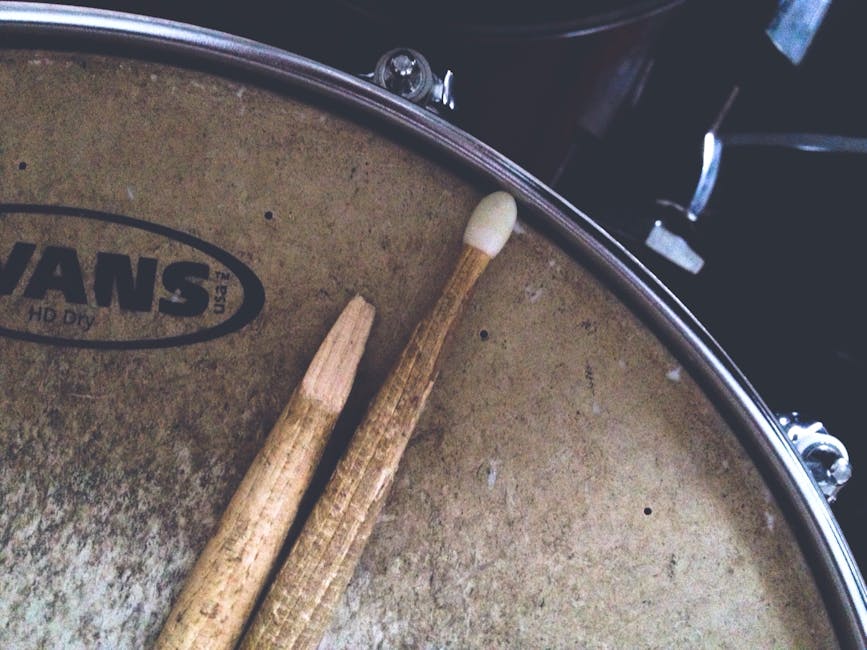The Soundtrack of Victory: Music’s Role in Sports Performance
In the world of sports, victory often comes down to the smallest of margins. Athletes train for countless hours, focusing on conditioning, strategy, and mental fortitude. But have you ever considered the role of music in this equation? As unique as every athlete’s journey is, the power of sound can significantly enhance performance and team dynamics. In this exploration, we uncover the compelling relationship between music, acoustics, and athletic success. Music isn’t just noise; it’s a profound influence on motivation, teamwork, and strategy in sports.
The Psychological Influence of Music on Athletes

The connection between music and athletic performance is not merely anecdotal; it has roots in psychology and neuroscience. Numerous studies have established that music can enhance performance by stimulating the brain's reward systems, leading to increased motivation and improved focus. According to a study published in the Journal of Sports Psychology, athletes who listened to motivational tracks during training reported higher engagement levels and lower perceptions of fatigue.
Music as a Motivational Tool

Imagine a soccer player warming up before a critical match, earbuds in, pumping up their adrenaline with heavy beats. This scene reflects how professional athletes often use playlists to cultivate a specific emotional state prior to competition. The right song can evoke feelings of confidence or aggression, enhancing athletes' mental state before they step onto the field.
Additionally, music contributes to narrative-building in sports. Athletes often associate certain songs with victorious moments, creating a mental repertoire of 'victory tracks' that they can call upon during performance. This psychological anchoring can be a strategic advantage.
Acoustics, Atmosphere, and Team Performance

While individual athletes benefit from music's motivational impacts, it also plays a crucial role in team dynamics. The acoustics of a sporting event—whether it's the roar of a crowd or the ambiance of a stadium—shape how teams respond to pressure. For instance, a rising crescendo during a climactic moment can energize players, leading them to elevate their performance.
The Crowd's Influence

When we discuss the atmosphere in sports, we cannot overlook the fans. The combination of music, cheers, and chants creates a powerful energy that resonates with athletes. Research indicates that athletes perform better in front of supportive crowds, and music amplifies this experience. During high-stakes competitions, the collective sound of team songs can unify players and strengthen their resolve.
Consider the iconic "We Will Rock You" by Queen—it’s not just a song; it's a rallying cry. When played during a game, it provides a soundtrack to the collective mindset, building momentum as players engage with the rhythm and energy of their supporters. This auditory experience transforms their perception of competition, potentially leading to enhanced performance.
Music in Strategy: An Unexpected Ally

Sports strategy often involves nuances that critics might overlook. The integration of music, particularly in training and mental rehearsals, represents a strategic approach to building an athlete’s skill set. Many athletes utilize music during visualization exercises, enhancing the imagery with soundscapes that mimic competitive scenarios.
Training Regimens Enhanced by Music

Incorporating music into workouts has become increasingly common in various forms of training, especially with the rise of group fitness classes and team-based training environments. Athletes often discover that specific rhythms help maintain a desired pace, whether it’s running, cycling, or even swimming. Research published in Sports Medicine suggests that certain tempos can significantly improve stamina and overall performance.
Moreover, the tempo of a song can induce rhythm in movements, aiding athletes in executing complex maneuvers. The faster the beat, the more energized the workout—this principle enables coaches to curate playlists tailored to their athletes' specific needs, maximizing the effectiveness of each training session.
The Role of Pre-Game Rituals

Every athlete has pre-game rituals that help them reach peak performance. Often, these include musical components, whether it’s a set playlist or playing particular songs at specific moments. This ritualistic approach fosters a sense of stability and routine, essential for mental preparedness in sports.
Building Team Cohesion

Playing music together before games can also foster a sense of community and team bonding. Activities like group warm-ups or sing-alongs can strengthen relationships, encouraging collaboration and trust among teammates. This camaraderie translates into better performance during competition as players work in harmony with one another, reminiscent of the concept explored in team psychology.
Furthermore, team dynamics can be improved through shared musical experiences, establishing a foundation of mutual respect and understanding. By synchronizing their movements to the shared beat, teams reinforce their connection, enhancing overall performance on the field.
The Science Behind Acoustic Environments

Acoustic science is another fascinating area that reveals how certain sounds impact sports performance. The quality and characteristics of sound can affect an athlete's focus and emotional state. For instance, white noise can enhance concentration, offering a distraction-free environment for crucial moments like free throws in basketball or penalty kicks in soccer.
Noise Levels and Performance Outcomes

Consider the contrasting sounds of a tense, quiet match versus an electrifying, loud stadium. Each environment cultivates different responses from athletes. Studies indicate that moderate noise can stimulate excitement, whereas overwhelming chaos can lead to anxiety. Understanding this dynamic is vital for coaches and sports psychologists looking to optimize performance during critical moments.
Implementing soundchecks in venues to analyze and tailor acoustic experiences can fundamentally change how athletes perform. This emphasizes the importance of preparation and strategy in the context of sound, highlighting yet again how music and acoustics act as unsung heroes in sports.
Bridging Music and Recovery

After the adrenaline fades and the game concludes, music can also be a crucial part of recovery. Many athletes turn to soothing melodies during cooldown sessions to lower heart rates and promote relaxation. The use of music in this context not only aids in physical recovery but also reinforces mental well-being.
Music Therapy in Athletic Recovery

Integrating music therapy into recovery protocols can be beneficial. Research indicates that music can decrease anxiety and promote pain management in athletes, improving their overall mental state during recovery periods. Whether through cognitive-behavioral therapy aided by sound or simply listening to calming tracks, the use of music can guide athletes through stressful phases of their careers.Gamified recovery sessions, where athletes engage with rhythmic patterns, further enhance this therapeutic approach.
Inspiring the Next Generation of Athletes
As music evolves, so does its role in sports, particularly among youth athletes. The modern landscape of sports now includes e-sports, where sound plays a pivotal role in both gameplay and community engagement. In competitive e-sports, the influence of music has become essential in setting a spirited environment, underscoring its importance in training, strategy, and performance evaluation.E-sports analytics reflect traditional sports paradigms while embracing a fresh musical perspective to enhance player engagement and performance.
Fostering a relationship between music and young athletes can inspire future generations. This connection not only fosters creativity and individuality but aids in sculpting champions who understand the emotional and psychological elements of performance, leading to more holistic athlete development.
Final Thoughts
Music has an undeniable influence on sports, shaping not only individual pursuits of victory but also the collective spirit of teamwork and camaraderie. From enhancing performance through motivation and strategic preparation to fostering mental well-being in recovery, its role is pivotal in every aspect of athletics. As we continue to explore the depths of music's influence within sports, athletes, coaches, and psychologists will increasingly harness the power of sound to unlock performance potential.
So, as you prepare for your next game or workout, consider turning up the volume on your playlist. You may just discover your very own soundtrack of victory.



